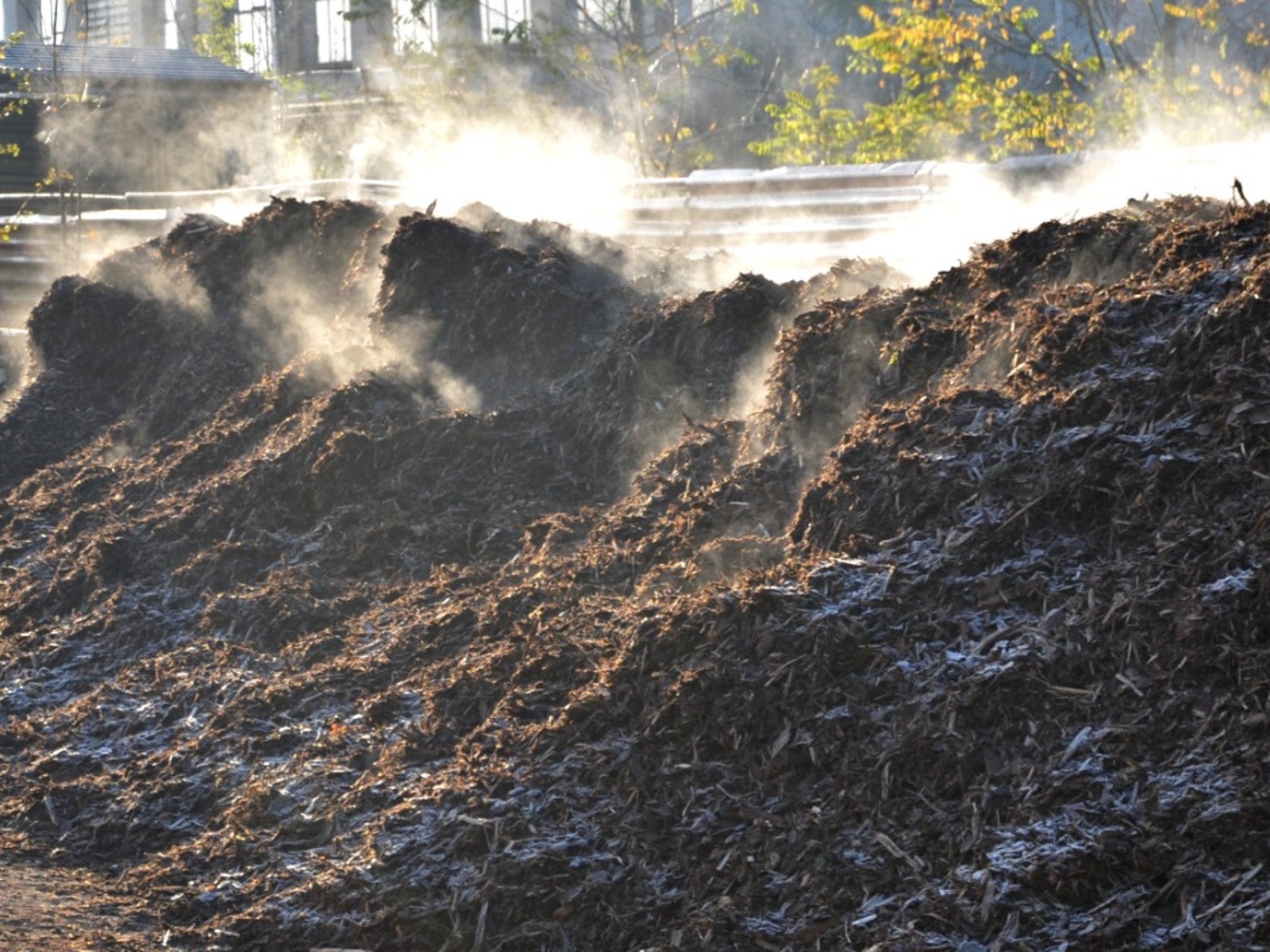My Compost Is Too Hot: What To Do About Overheated Compost Piles


The optimum temperature for compost to process is 160 degrees F. (71 C.). In sunny, hot climates where the pile hasn't been turned recently, even higher temperatures can occur. Can compost get too hot? Read on to learn more.
Can Compost Get Too Hot?
If compost is too hot, it can kill beneficial microbes. Overheated compost piles pose no fire danger if they are properly moist but some of the organic properties will be compromised.
Excessive temperatures in compost can cause spontaneous combustion, but this is very rare even among overheated compost piles. Properly aerated and moist compost piles, no matter how hot, are not dangerous. Even hot compost bins that are fairly enclosed will not catch fire if they are tumbled and kept moist.
However, the problem is what excessive heat does to the living creatures that break down that organic waste. Overheated compost piles will likely kill many of these beneficial creatures.
High temperatures are necessary to destroy pathogens and weed seeds in compost piles. Heat is released in the aerobic process that takes place as organic matter rots. However, excessively high temperatures remove some of the nitrogen in the compost.
The high temperatures will persist as long as the pile is turned, and oxygen is introduced. Anaerobic conditions occur when the pile is not turned. These drop the temperature and slow the decomposition process. Can compost get too hot? Of course, it can but in rare instances. Temperatures that exceed 200 degrees F. (93 C.) are likely damaging to the organisms that live and work in the compost.
What Causes Overheated Compost Piles to Catch Fire?
A rare combination of events can cause a compost pile to catch fire. These all must be met before the occasion arises.
Gardening tips, videos, info and more delivered right to your inbox!
Sign up for the Gardening Know How newsletter today and receive a free copy of our e-book "How to Grow Delicious Tomatoes".
- The first is dry, unattended material with pockets of debris mixed throughout that aren't uniform.
- Next, the pile must be large and insulated with limited airflow.
- Finally, improper moisture distribution throughout the pile.
Only the largest piles, like those in commercial composting operations, are really in any danger if they are mismanaged. The key to preventing any issues is proper maintenance of your organic matter to prevent hot compost bins or piles.
How to Tell if Your Compost is Too Hot
It doesn't matter if you have a bin, tumbler, or just a pile on the ground; compost needs to be in sun and heat. It also releases heat. The key to managing the heat level is to make sure there is an introduction of oxygen and moisture to all parts of the compost.
You also need the right balance of carbon and nitrogen materials. Compost is too hot often with too much nitrogen. The proper mix is 25 to 30 parts carbon to one part nitrogen. With these practices in place, your compost bin will likely keep at just the right temperature to create some organic goodness for your garden.

Bonnie Grant is a professional landscaper with a Certification in Urban Gardening. She has been gardening and writing for 15 years. A former professional chef, she has a passion for edible landscaping.
-
 Looking For Plants To Give You The Soft And Fuzzies? Try These 5 Fuzzy Leaf Plant Options
Looking For Plants To Give You The Soft And Fuzzies? Try These 5 Fuzzy Leaf Plant OptionsLovers of texture, drama, silver foliage and tactile plants will adore these special sensory garden additions. These fuzzy leaf plant options will leave you all aglow
By Susan Albert
-
 Get Ready For A Summer Of Hummers! Grow These Full Sun Hummingbird Plants and Flowers
Get Ready For A Summer Of Hummers! Grow These Full Sun Hummingbird Plants and FlowersIf you’re lucky enough to enjoy a sunny backyard, make sure you are maxing out on your pollinator opportunities and grow these full sun hummingbird plants and flowers
By Tonya Barnett